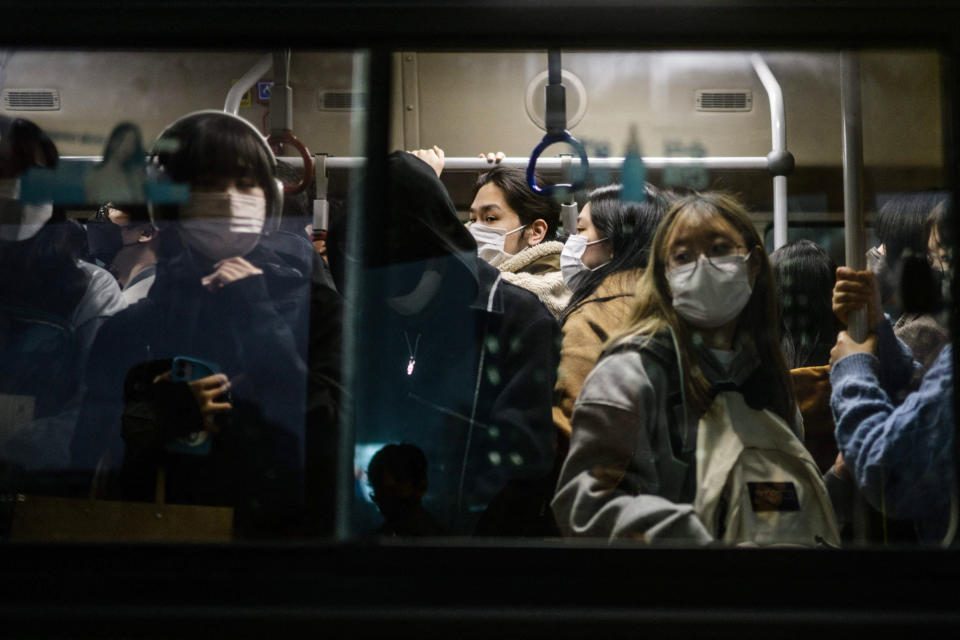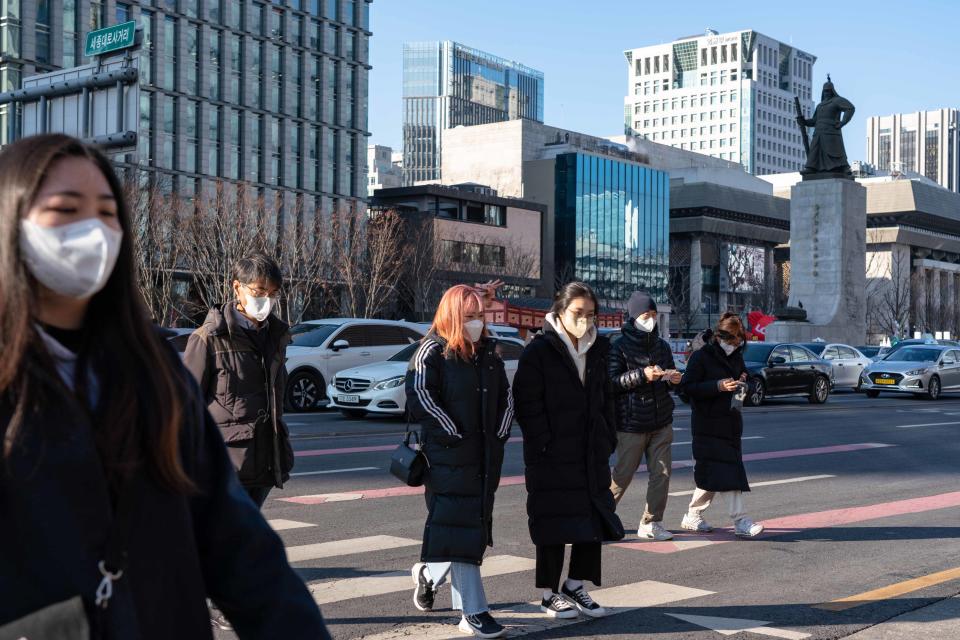A 69-hour workweek? That’s no way to live, young South Koreans say
SEOUL, South Korea — A proposal to increase the maximum workweek to 69 hours from 52 in South Korea, one of the world’s hardest-working countries, has drawn intense backlash from younger workers and set off a raging generational debate about work-life balance.
The proposal from President Yoon Suk Yeol’s administration had seemed counterintuitive on its face: The government asserted that raising the weekly cap on overtime would actually give workers more flexibility, quality of life and time with their families.
The argument, laid out by South Korea’s labor minister this month, was that by calculating overtime caps monthly or annually instead of weekly, workers could bank more overtime during periods when it was convenient for them to work. They could then use the saved-up time during other parts of the year to take longer vacations or parental leave.
But after a strong public outcry, including protests by unions and a torrent of opposition on social media, the government is scrambling to walk back the proposal while vowing to do a better job listening to the country’s youths.
“Whenever I come home, my dad seems to come home late,” Hwang Joon-pyo, 22, said in an interview in his family home in Seoul, the capital. “It makes me think a lot about could I work like that? Would I be able to do well?”
Not long ago, Hwang was studying science at a South Korean university, following in the footsteps of his father, Hwang Sung-kwan, who runs a pharmaceutical manufacturer south of the city.
But the son decided his father’s way was not his way: He left college to focus on his dream of being a DJ and now works overnight playing electronic dance music in one of Seoul’s hottest clubs.
His father still harbors hopes his son will return to school to study science or engineering.
“Frankly speaking, I wanted that,” Hwang Sung-kwan said with a weighty sigh as he walked the floor of his factory. “But whose decision is it? It’s my son’s decision, my son’s life.”
The societal debate in South Korea about working to live versus living to work echoes the one playing out around the world as Covid-19 recedes, with phrases like “quiet quitting” and the “Great Resignation” entering the vernacular.
Buoyed by a strong labor market, many workers who grew accustomed to working less or from home during the pandemic are rethinking their willingness to return to their old lives dominated by wage-earning labor. In France, outrage over President Emmanuel Macron’s push to raise the retirement age by two years, to 64, is fueling violent protests.

Yet concerns about overworking are particularly acute in South Korea, a country with a notorious workaholic culture of long hours and intense educational expectations that aided its rapid economic growth after the Korean War.
On average, South Koreans work 1,915 hours per year, the fifth highest among countries in the Organization for Economic Cooperation and Development. By comparison, Americans work an average of 1,791 hours annually, while the average is 1,490 hours in France and 1,349 hours in Germany, according to OECD data.
South Korean workers described a culture in which overtime is ubiquitous, workers are expected to attend mandatory after-work team dinners and drinking sessions, and employees feel compelled to stay at the office until they see the boss leave, regardless of whether they’ve finished their tasks.
Workaholism here has also driven concerns over public health — South Korea has the highest suicide rate among developed countries in the OECD — and its role in the country’s demographic crisis. South Korea has the world’s lowest fertility rate, at 0.78 children per woman in her childbearing years, meaning there are more deaths than births.
“Fewer and fewer women want to have babies, because they realize that having a baby means that it’s the end of your career, effectively,” said Cho Hee-kyung, a professor at the Hongik University College of Law. “The long working hours mean that fathers are unable to participate properly in child rearing, as well.”
The hours can be so demanding that many South Koreans flock to “nap cafes” that have popped up in office buildings, offering workers a chance to snooze away their lunch breaks in dark, quiet rooms outfitted with comfy massage chairs.
On a recent afternoon in central Seoul, Ahn Sae-hee was working one of his four jobs, checking in customers at Mr. Healing Sleep Cafe, a business he founded and said is flourishing, with all slots booked and nappers on a waitlist during lunch hours. Even though it was a Saturday, the cafe was about half full — a symptom, Ahn said, of a culture of overwork.
“Workers, unless they work for big conglomerates, don’t have spaces in their workplace where they can rest, unless they sleep on their desks,” said Ahn, who predicted that nap cafes like his would continue to grow.

But in a sign of a growing generational divide, there is increasingly vocal opposition to workaholic culture from South Korea’s so-called MZ Generation, a local initialism that groups together millennials and Generation Z, the cohort now in their early 20s to late 30s, who make up about a third of South Korea’s population of more than 51 million.
“Even if they don’t have a secure job, if they are able to pursue something that ignites their passion, they are willing to do that,” Cho said. “And I think the older generation finds it very difficult to understand.”
Bowing to the public uproar, Yoon used a Cabinet meeting Tuesday to backtrack further on the 69-hour workweek limit, saying his views had changed and he now believes anything over 60 hours would be unhealthy. He said his administration would go back to the drawing board on its proposal and listen carefully to the voices of young South Koreans in particular.
As the sun set over the Han River, which runs through Seoul, Hwang Joon-pyo was getting ready for his shift at the turntables in the city’s trendy Gangnam neighborhood. Asked whether he might one day fulfill his father’s wishes for him to join the family business, he said he hadn’t ruled it out.
“Lately, I’ve been thinking about it,” he said. “But for now, I want to focus more on my work. In the future, when I’m resting or in my free time, I want to think more about how I plan to live my life from now on.”
This article was originally published on NBCNews.com

